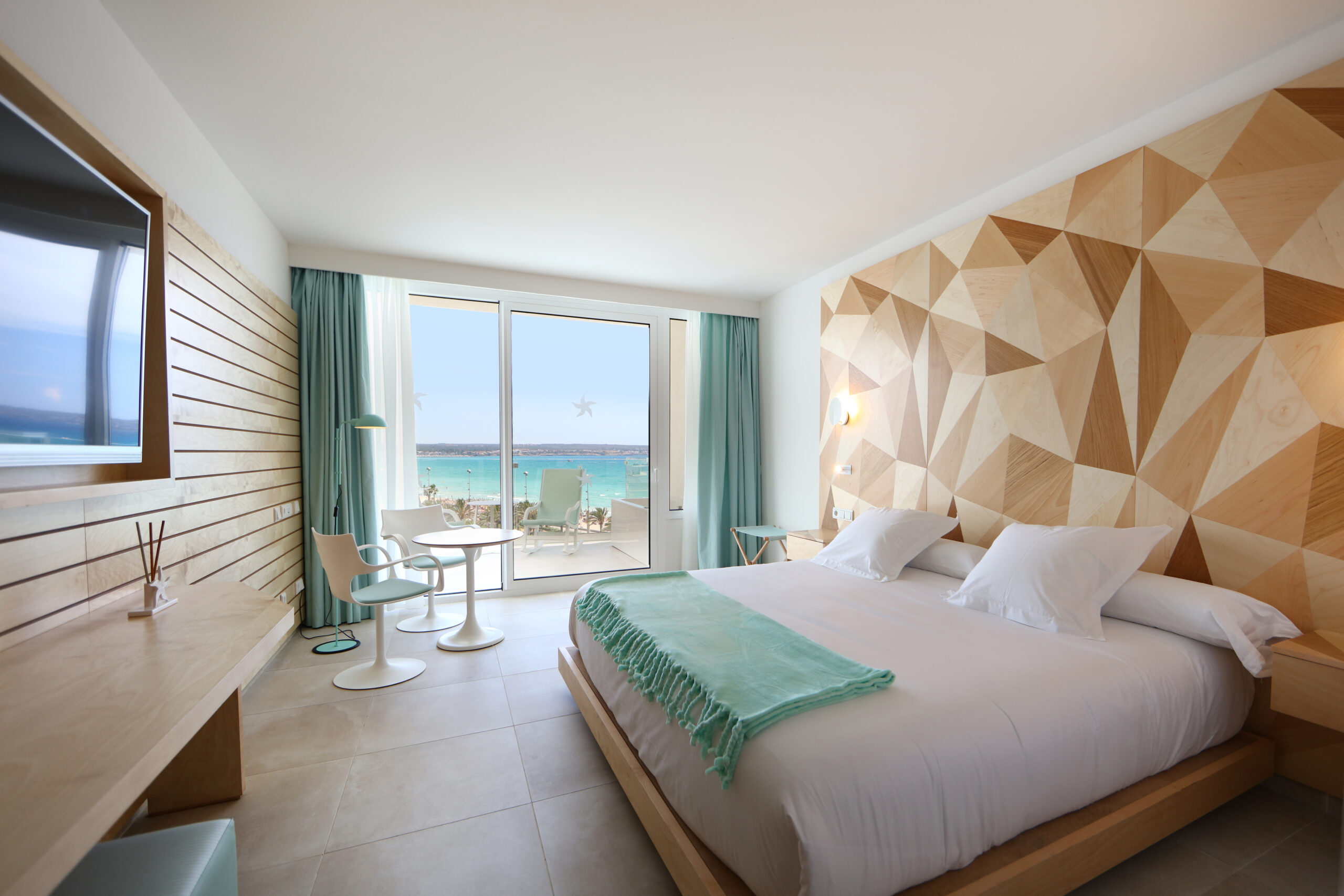In the last few months, we have spent countless hours taking new measures to protect ourselves and the ones we love. We’ve formed new habits, created new traditions and become more conscious and creative in the way we source food and other products more locally, even if only out of necessity. Collectively, we’ve treaded more lightly on the planet, because we’ve had to.
Now people around the world eagerly anticipate more freedom. Some anticipate returning to work. Others might be fortunate enough to take the vacations they canceled or postponed—the ones they deserve.
Tourism must come back. In past crises it has been one of the most resilient sectors. The threat to people and the industry by Covid-19 might be unprecedented, but it also presents us with a choice: to return to business as usual (or worse, take backwards steps in progress), or to use sustainability as a core driver of our return. For all of our bottom lines, responsible tourism must lead the way to help tourism companies build back better.
We say this not only as owners or managers of more than 120 hotels in 19 countries, a business responsible for the health and safety of almost 10 million guests a year and the livelihoods of 34,000 employees. We say it as part of an industry that is responsible for our oceans. Eighty percent of our properties sit alongside them. It’s the reason many guests choose to stay with us. The revenue they generate supports our protection of oceans. The sooner tourists return, the faster we can expand our efforts to restore and protect these ecosystems and the communities where we operate.
Just how tourism and travel companies return is the subject of a growing and diverse number of global conversations. We’re joining many of them, before during and after World Oceans Day, including Capitol Hill Oceans Week and the World Economic Forum’s Virtual Ocean Dialogues. We hope to be among the companies setting examples for others to follow, one of several in the UNWTO’s latest position paper on a vision for a responsible recovery of the tourism sector. We believe tourism companies who want to achieve long-term resilience have to adopt three characteristics.
First, hotel and tourism companies have to adopt a long-term vision. Iberostar’s entire operations will be single-use plastic free by 2020, as far as local regulation allows. We’ll be waste-free by 2025. The scientific community has clearly demonstrated the productivity of blue carbon sinks, such as mangroves or seagrasses, to achieve carbon neutrality. For the tourism sector, there’s a sector-wide goal to be neutral by 2050. We aim to be there by 2030. Plus we’re working on building regenerative water systems at our properties and using this moment to kickstart better waste management efforts: We’re sorting more waste and collecting and removing materials for aspirational recycling (actually polluting otherwise recyclable waste streams with items that can only go to landfills). We hope to quantify how tourism, when done correctly and guided by science, can actually improve coastal regions.
Importantly, we’re calling out these efforts for guests—as they begin planning vacations, when they check-in, and throughout their experiences with us so they feel a part of our movement by simply enjoying new amenities and experiences, and we’re actively asking them to share their feedback when we, or any brand, behaves in a way that’s good for the planet, so we can amplify efforts through our tens of thousands of employees.
To reclaim the 58-78% of international tourist arrivals that the tourism industry lost in 2020 as a result of Covid-19 we have to appeal to the sense of environmental consciousness that people discovered in lockdown. We have to continue to fight for circularity in the use of each new product that’s introduced (recycling or upcycling things we use, using the things we recycle)—whether it’s gloves or a mask or any of the components of the 300+ hygiene protocols we’re enacting with our medical council. We can’t go backward and let those things end up in the ocean we’re trying to protect.
Tourism doesn’t have to be contradictory to ecological health at coastal destinations. Safety and sustainability can enhance the joy of a vacation.
Secondly, we have to base our decisions and priorities on science and share it with guests. As they evaluate travel options, tourists can easily find our Wave of Change commitments, a movement rooted in time-bound transparent goals all the way to 2030 and annual reports and objectives each year that demonstrate progress toward them (our 13-point plan and six-point science strategy is easy for guests to find).
Because a healthy environment acts as a natural barrier to future pandemics, we’ve hired a Medical Advisory Council not only to provide counsel but as part of our core business operations team. It’s made up of internal talent and renown experts in public health, health security, virology and epidemiology. With them at the table for business decisions, in accordance with guidelines by the UNWTO and others, we will inspire confidence among guests, challenge misinformation and innovate around health and safety measures that create long-term resilience.
Finally, we must consider all the ways our businesses affect the environment. More than a year ago, our top executives identified climate change as one of the largest threats to our company. Now some of the world’s most prominent business leaders are calling the global pandemic a “dress-rehearsal for dealing with climate change.”
A cornerstone of our efforts to combat climate change include our commitment to be a net zero, carbon neutral company by 2030, even in places where renewable energy is just starting to take foot. We do this by not only minimizing our footprint, but offsetting with blue carbon solutions such as our mangrove and coral reef restoration programs. We’re transforming our green spaces in our complex in the Dominican Republic to be mangrove dominated. At the moment, we have managed to get all permits required by the different government entities in Mexico, to install our in-water coral nurseries, as a result of our alliance with CINVESTAV.
When we do reef restoration in places like Mexico, we align it with biological goals. So as guests begin to look for and book their next diving adventures, for example, they find not only pretty underwater structures but actually get to participate in and support projects that create scientifically quantifiable increases in biodiversity and biomass. We’ve learned that by making coastal and coral restoration part of the guest experience and part of our outreach to communities, we can help inspire sweeping change for marine ecosystems, engage locals and tourist alike in their protection, and help secure fish populations for local businesses and residents that rely on them.
We continue to work with the Marine Stewardship Council (MSC), Aquaculture Stewardship Council (ASC) and the Global Seafood Sustainability Initiative to launch one of the sectors most ambitious roadmaps to 100% responsible seafood sourcing by 2025. We will be launching that roadmap alongside a discussion with NGO’s and industry alike to explore some of these topics. Part of those plans means we’ll source at least 45% of our total seafood from responsible sources by the end of 2020. We’re using this unpredictable re-set in our supply chains to come back more prepared and more responsible, collaboratively making steps at each destination alongside our suppliers.
As more people venture out, we hope they will carry with them an environmental awareness they adopted in recent months and ask new questions about the places they choose to visit. Tourism companies have the opportunity to introduce more travelers to vacations that are more enjoyable and carbon-neutral. We can share the stories behind the food they enjoy—where it comes from and why—and in the process make it even more memorable. We can offer the privilege of discovering more biodiversity hotspots not only because living reefs and thriving ocean ecosystems are more beautiful, but because experiencing them underscores the importance of protecting them. By incorporating ocean management, sustainable seafood and other elements of responsible tourism into travelers’ experiences we can build back stronger and create a Wave of Change.
Sabina Fluxá Thienemann (Vice President & CEO of Grupo Iberostar)
Gloria Fluxà Thienemann (Vice President & CSO of Grupo Iberostar)






